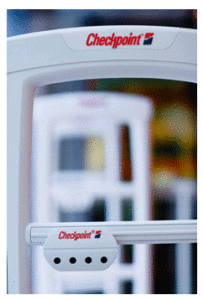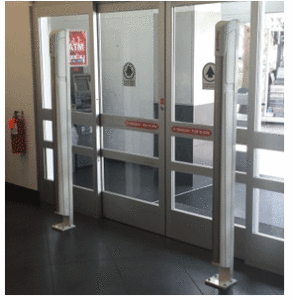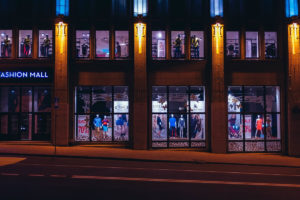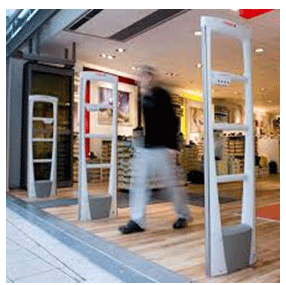 Many stores, public places, and government buildings display firearms law posters on the wall where everyone that enters their place will undoubtedly see it. Some retail stores display their shoplifting policy where customers can see it. But, many of these places though, fail to educate their employees as to their store policy when stopping a shoplifter. Who is responsible of making sure every single employee knows the policy of the store? When is this supposed to happen? At the time of hiring? For many retail stores, preventing shoplifting begins by educating their employees about the policies and procedures they need to follow when stopping a shoplifter.
Many stores, public places, and government buildings display firearms law posters on the wall where everyone that enters their place will undoubtedly see it. Some retail stores display their shoplifting policy where customers can see it. But, many of these places though, fail to educate their employees as to their store policy when stopping a shoplifter. Who is responsible of making sure every single employee knows the policy of the store? When is this supposed to happen? At the time of hiring? For many retail stores, preventing shoplifting begins by educating their employees about the policies and procedures they need to follow when stopping a shoplifter.
For more about this and other stories, follow the links below.
Home Depot employees fired after following suspect
PALM COAST, Fla. (WOFL FOX 35) – Four former employees at a Home Depot in Florida were fired after they attempted to stop a shoplifter in November.
Jeffrey Miller, 59, George Ippolito, 56, Joe Spector, 29, and Jazmin Kelly, 27, all worked together at a Home Depot in Palm Coast, Florida. On November 19, the 4 employees attempted to track down a customer who appeared to be shoplifting at the store.
However the co-workers did not know that their act to prevent crime went against company policy.
The Home Depot released a statement in regards to the incident: “Pursuing shoplifters in the store or in the parking lot is extremely dangerous and risks the safety of everyone, which is why we only allow trained security personnel to do so. We’ve had instances of serious injury and even fatality in our stores. No amount of merchandise is worth risking the safety of others.”
The employees expressed shock by their termination as Fox 35’s Kelly Joyce reports from Flagler County in the video above.
The suspect has been identified as 22-year-old Brandon Charles Edward Mullins Lowe of Hastings, Florida who allegedly admitted to stealing close to $1,000 worth of tools from the store. Lowe was being held in the Flagler County Jail on grand theft charges.
Police: Shoplifting doubles near holidays
As shoppers hit area stores for the impending holidays, so will shoplifters, say area police.
“It probably doubles during the peak of the holiday shopping season,” said Logan Township Police Chief Tim Mercer, referring to the number of retail theft calls the township’s officers will handle.
Mercer said officers typically get one to two calls each week, and with the increase in retail thefts also comes increases in other crimes related to shopping, such as identity theft, where people are opening up credit cards in other people’s names, and thefts from vehicles.
Most of the incidents of retail theft and other thefts occur at two highly concentrated shopping areas — Logan Town Centre and the Logan Valley Mall, Mercer said.
Stores are reluctant to talk about shoplifting, either out of a fear of calling attention to their stores and becoming targets or because they don’t want to divulge exactly how they deal with retail thefts.
One store manager of a longtime township store, who spoke only if his name of business wasn’t published, said stores take two approaches to dealing with shoplifters — either they try to catch them or they try to prevent them from stealing in the first place.
Five Steps to Recruiting the Right Loss Prevention Professionals
The success of any organization is determined by the talent of its people. In his book Good to Great: Why Some Companies Make the Leap…and Others Don’t, Jim Collins put it this way: “People are not your most important asset. The right people are.”
Whether it’s a company, a loss prevention and safety department, or a sports team, the more talented people within the organization, the greater chance it has to succeed. Loading any organization with talented loss prevention professionals requires a comprehensive five-step people strategy.
Recruiting. The first component of this strategy is recruiting. It all starts with a sound recruiting strategy to ensure there is a sufficient pool of applicants.
 s level, but your bottom dollar. When people have a problem, they research a solution. One way to prevent shoplifting is having an electronic article surveillance system installed by a reputable company. Searching for such a company can be daunting. Shoplifting is an issue that needs to be addressed and resolved quickly. Why would you choose Checkpoint equipment from Loss Prevention Systems Inc. (LPSI?)
s level, but your bottom dollar. When people have a problem, they research a solution. One way to prevent shoplifting is having an electronic article surveillance system installed by a reputable company. Searching for such a company can be daunting. Shoplifting is an issue that needs to be addressed and resolved quickly. Why would you choose Checkpoint equipment from Loss Prevention Systems Inc. (LPSI?) nce and typically resolve potential issues. With its strong frame and Evolve capabilities, it will last a long time and is “future proof”.
nce and typically resolve potential issues. With its strong frame and Evolve capabilities, it will last a long time and is “future proof”.  Can you believe we are in December already? This year has flown by and we’re in the home stretch. For many, many small and large businesses alike, this next month is crucial to profitability. Often times, the 4
Can you believe we are in December already? This year has flown by and we’re in the home stretch. For many, many small and large businesses alike, this next month is crucial to profitability. Often times, the 4
 It’s official folks. It’s December and the year is almost over. It also means that you’ve probably hired some additional help around the store. Whether they be temporary, part-time or full-time employees, they all have one thing in common; they have the potential to steal from you. I hate to sound so cynical, but I’m a realist. With December historically being the biggest month for internal theft, I’d thought I’d share some of my tips on how to spot a potential dishonest employee.
It’s official folks. It’s December and the year is almost over. It also means that you’ve probably hired some additional help around the store. Whether they be temporary, part-time or full-time employees, they all have one thing in common; they have the potential to steal from you. I hate to sound so cynical, but I’m a realist. With December historically being the biggest month for internal theft, I’d thought I’d share some of my tips on how to spot a potential dishonest employee.
 From
From 
 The holiday season is officially under way and your stress level is about to go into overload. When we’re overly stressed bad things happen to us mentally, emotionally and physically: headaches, digestive issues, eating too much, concentration problems, decreased impulse control, increased emotional sensitivity, poor planning ability and sleep disturbances.
The holiday season is officially under way and your stress level is about to go into overload. When we’re overly stressed bad things happen to us mentally, emotionally and physically: headaches, digestive issues, eating too much, concentration problems, decreased impulse control, increased emotional sensitivity, poor planning ability and sleep disturbances. Step back and take a hard look. Or better yet ask someone you trust to do that. A friend, another business owner…… they really do not need to have any special skills. You should look at your store from the prospective of the shoplifter. If you were going to steal, how would you do it? Do you have dark areas, high shelving, hidden spots that would make the thief comfortable? Is your store unkempt, dirty and not stocked in an organized way? Shoplifters are attracted to these environments. If you are presenting that look, then the shoplifter probably knows you are not able to keep up or simply do not care. This will also breed more shoplifting as word gets around that YOUR STORE is an easy mark.
Step back and take a hard look. Or better yet ask someone you trust to do that. A friend, another business owner…… they really do not need to have any special skills. You should look at your store from the prospective of the shoplifter. If you were going to steal, how would you do it? Do you have dark areas, high shelving, hidden spots that would make the thief comfortable? Is your store unkempt, dirty and not stocked in an organized way? Shoplifters are attracted to these environments. If you are presenting that look, then the shoplifter probably knows you are not able to keep up or simply do not care. This will also breed more shoplifting as word gets around that YOUR STORE is an easy mark.
 Are they asleep at the switch? Do they care? Have you trained them how you want the shoplifting deterrence program in your store to work and what their roll in it is? This is not something you can put off. It’s like saving money in an account. You got to start. If you are one of Loss Prevention Systems Customers already, then you know this. That is why we conduct live, personalized shoplifting prevention and loss prevention training for our customers.
Are they asleep at the switch? Do they care? Have you trained them how you want the shoplifting deterrence program in your store to work and what their roll in it is? This is not something you can put off. It’s like saving money in an account. You got to start. If you are one of Loss Prevention Systems Customers already, then you know this. That is why we conduct live, personalized shoplifting prevention and loss prevention training for our customers. 